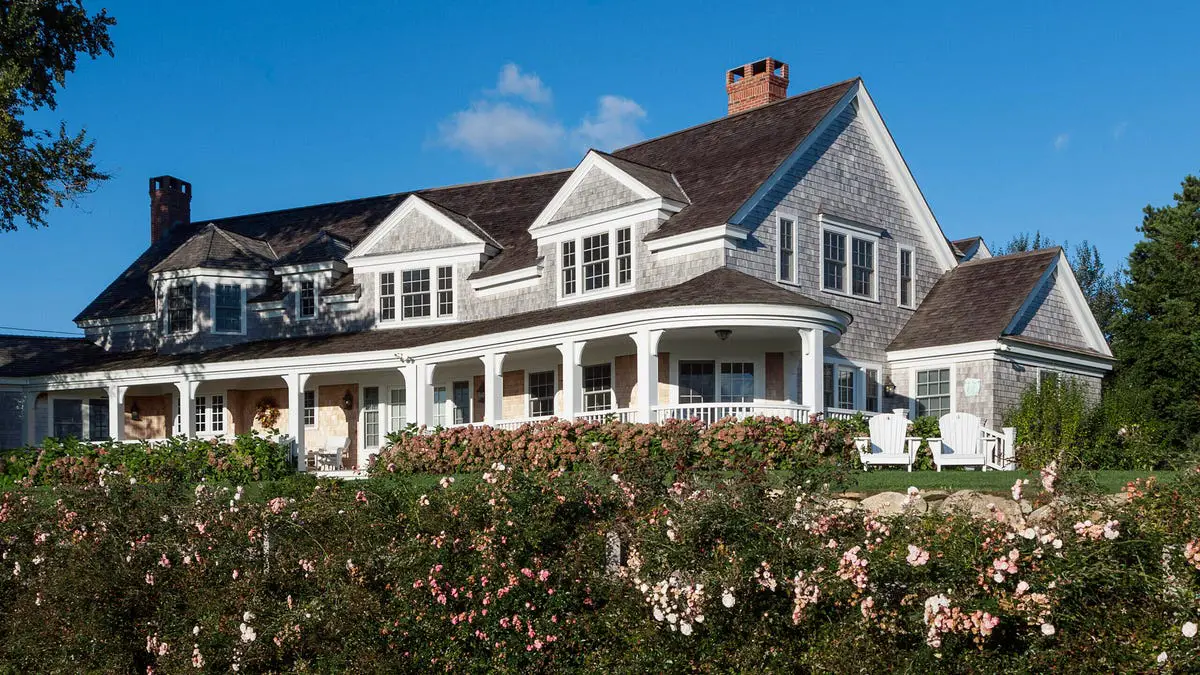
Check out CNET Money’s weekly mortgage rate forecast for a more in-depth look at what’s next for Fed rate cuts, labor data and inflation.
It’s been a bumpy few months for mortgage rates. Lingering inflation, the threat of a global trade war and growing recession worries have reduced affordable options for homebuyers.
For a 30-year fixed-rate mortgage, the average rate you’ll pay is 6.83% today, up 0.01% since one week ago. The average rate for a 15-year fixed mortgage is 6.02%, which is a decrease of -0.01% compared to a week ago.
Given so much economic uncertainty, the Federal Reserve is adopting a wait-and-see approach when it comes to interest rate adjustments. After cutting borrowing costs three times last year, the central bank has held rates steady so far in 2025 and is likely to do the same at its upcoming May 7 meeting.
If President Trump eases some of his aggressive tariff measures or if the labor market deteriorates, it could prompt the Fed to resume easing interest rates, which would put downward pressure on bond yields and mortgage rates, said Logan Mohtashami, senior analyst at HousingWire.
Average 30-year fixed rates are likely to remain stuck between 6.5% and 7% for the time being. Prospective homebuyers also continue to face the challenges of high home prices and limited inventory.
Today’s mortgage rates
When mortgage rates start to fall, be ready to take advantage. Experts recommend shopping around and comparing multiple offers to get the lowest rate. Enter your information here to get a custom quote from one of CNET’s partner lenders.
About these rates: Bankrate’s tool features rates from partner lenders that you can use when comparing multiple mortgage rates.
Recent mortgage rate trends
Mortgage rates are closely tied to the bond market, specifically the 10-year Treasury yield, which is sensitive to investors’ expectations for inflation, labor data, changes to monetary policy and global measures like tariffs.
Early forecasts called for a gradual decline in mortgage rates (potentially reaching 6% by the end of 2025), but concerns over a potential recession and uncertain trade policies have kept longer-term bond yields and mortgage rates in flux so far.
“Bond yields will only drop if the rate of inflation continues to drop and the economy weakens,” said Melissa Cohn, regional vice president at William Raveis Mortgage. “If inflation were to fire back up, that could cause rates to go up,” Cohn said, noting that tariffs, by nature, are inflationary.
Even if the economy slows and the Fed resumes interest rate cuts this summer, it will be difficult for mortgage rates to fall below 5.5% without the risk of a job-loss recession.
For a look at mortgage rate movement in recent years, see the chart below.
What is the outlook for mortgage rates in 2025?
Check out CNET Money’s mortgage forecast for 2025. Here’s a look at where some major housing authorities expect average mortgage rates to land.
What are the different mortgage types?
Each mortgage has a loan term, or payment schedule. The most common mortgage terms are 15 and 30 years, although 10-, 20- and 40-year mortgages also exist. With a fixed-rate mortgage, the interest rate is set for the duration of the loan, offering stability. With an adjustable-rate mortgage, the interest rate is only fixed for a certain amount of time (commonly five, seven or 10 years), after which the rate adjusts annually based on the market. Fixed-rate mortgages are a better option if you plan to live in a home in the long term, but adjustable-rate mortgages may offer lower interest rates upfront.
30-year fixed-rate mortgages
For a 30-year, fixed-rate mortgage, the average rate you’ll pay is 6.83% today. A 30-year fixed mortgage is the most common loan term. It will often have a higher interest rate than a 15-year mortgage, but you’ll have a lower monthly payment.
15-year fixed-rate mortgages
Today, the average rate for a 15-year, fixed mortgage is 6.02%. Though you’ll have a bigger monthly payment than a 30-year fixed mortgage, a 15-year loan usually comes with a lower interest rate, allowing you to pay less interest in the long run and pay off your mortgage sooner.
5/1 adjustable-rate mortgages
A 5/1 adjustable-rate mortgage has an average rate of 6.11% today. You’ll typically get a lower introductory interest rate with a 5/1 ARM in the first five years of the mortgage. But you could pay more after that period, depending on how the rate adjusts annually. If you plan to sell or refinance your house within five years, an ARM could be a good option.
Calculate your monthly mortgage payment
Getting a mortgage should always depend on your financial situation and long-term goals. The most important thing is to make a budget and try to stay within your means. CNET’s mortgage calculator below can help homebuyers prepare for monthly mortgage payments.
Where can I find the best mortgage rates?
Though mortgage rates and home prices are high, the housing market won’t be unaffordable forever. It’s always a good time to save for a down payment and improve your credit score to help you secure a competitive mortgage rate when the time is right.
- Save for a bigger down payment: Though a 20% down payment isn’t required, a larger upfront payment means taking out a smaller mortgage, which will help you save in interest.
- Boost your credit score: You can qualify for a conventional mortgage with a 620 credit score, but a higher score of at least 740 will get you better rates.
- Pay off debt: Experts recommend a debt-to-income ratio of 36% or less to help you qualify for the best rates. Not carrying other debt will put you in a better position to handle your monthly payments.
- Research loans and assistance: Government-sponsored loans have more flexible borrowing requirements than conventional loans. Some government-sponsored or private programs can also help with your down payment and closing costs.
- Shop around for lenders: Researching and comparing multiple loan offers from different lenders can help you secure the lowest mortgage rate for your situation.


